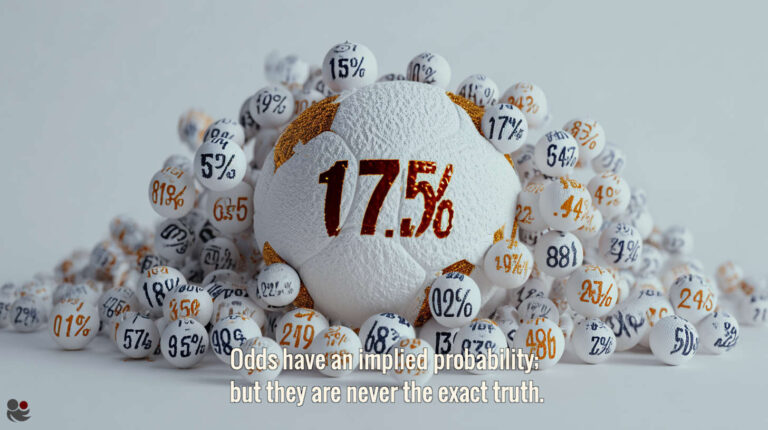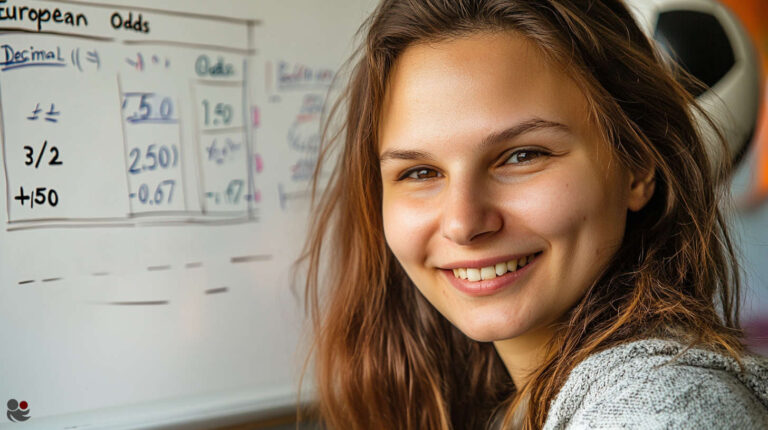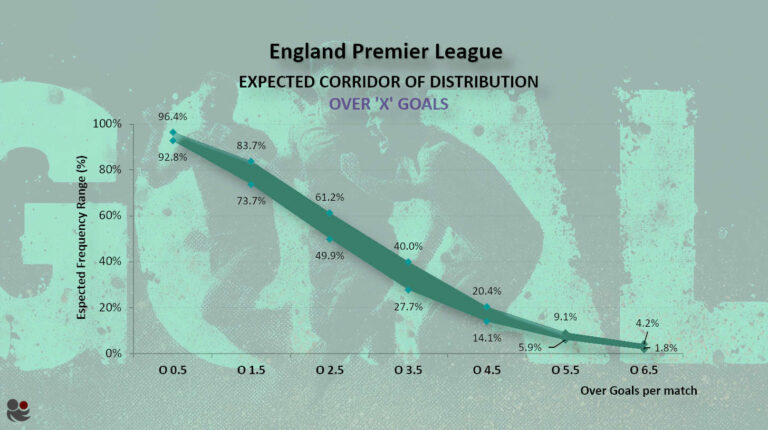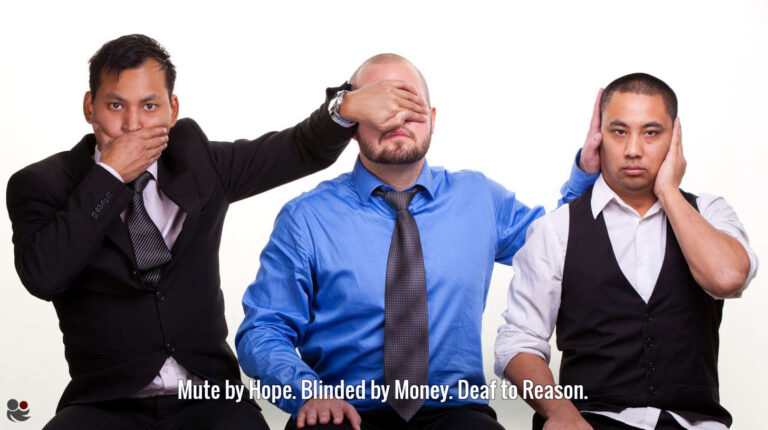
A bet isn’t a gamble — it’s a weighted decision. Understanding the odds means knowing when the scale tips in your favour.
Most people misunderstand what a bet actually is. It’s not just a guess – it’s a structured agreement based on risk, probability, and expected payout.
It is difficult to believe but, there are plenty of people around who have little idea exactly what a bet is or what is meant whenever I mention being interested in betting or the fact that I run a Web site about online football betting.
Obviously in England most people have come across betting at some stage in their lives and high street bookmakers’ shops have been around in their multitudes for decades. However, most of my family lives in Germany and belongs to the innocent or ignorant section of society which has little notion.
I recently spent hours trying to explain to my Father what a bet is. Also, the fact that one can bet on various outcomes in the same football match was a new and slightly confusing concept to many of my family members.
Therefore, today’s article sets out exactly what is meant by the terms “bet”, “betting”, “odds”, “stake”, “bookmaker” and “mathematical advantage”.
Betting on the example of a coin toss
Imagine tossing a coin: there are two possible outcomes, either it will land showing the ‘head’ or the ‘tail’ facing up. The separate ‘likelihood’ (or ‘probability’) of both results is exactly 50/50. In other words, after 100 throws, in theory the result should show 50 ‘heads’ and 50 ‘tails’.
Now we will apply the concept of betting to these results: one person believes the next coin toss will be ‘heads’, whilst the other believes the outcome will be ‘tails’ and both parties agree to wager (bet) money on their guesses. In betting terminology, the money risked by both parties in this transaction is called the ‘stake’ and for this example the stake shall be one Euro. This means each party bets one Euro on their chosen result to win.
The coin is tossed: if ‘heads’ lands face-up then the party who guessed/wagered on ‘heads’ wins and vice versa if it lands ‘tails’. The player who guessed correctly keeps his stake AND wins the stake of the other person; the opponent loses his stake (in this example one Euro).
If this game is played, say 100 times, and both parties stick religiously to their selections (i.e. each betting 100 times always on the same result), then after 100 coin tosses, according to theoretical probability, both should be neither the richer nor the poorer than at the beginning. As seen, for one player there should theoretically be 50 times ‘heads’ meaning 50 wins of one Euro, cancelled out exactly by the coin landing 50 times ‘tails’. Of course, this situation is also parity for the other player.
However, perhaps the game doesn’t pan out according to the theoretical rules? Maybe the perception is that ‘heads’ lands face-up more often than ‘tails’? The game now evolves and receives an ‘edge’ if one party is no longer willing to pay out one Euro should ‘heads’ win but reaches an agreement with the other to pay say, 90 Cents instead. This means that in future if ‘heads’ wins he will now only earn 90 Cents each time but, if ‘tails’ wins, then his opponent wins the bet and with it the whole of ‘heads’ one Euro stake.
This change now guarantees a loss on one side and a profit to the other, over the longer term: If one bets 100 times ‘heads’ and as expected, the coin lands 50 times ‘heads’ then 45 Euros will be won (50 x 90 Cents = 45 €); however when ‘tails’ lands 50 times then 50 Euros will be lost (50 x 1 € = 50 €). In this way, whoever puts their selves in the position of mathematical disadvantage in a gambling transaction will for sure lose money in the long run. In our example, after 100 bets, the player of ‘heads’ will have lost five Euros. The winner of this transaction received one Euro every time the coin landed ‘tails’ and only paid out 90 Cents when the coin landed in favour of their opponent, ‘heads’.
What are “odds” and what is a “bookmaker”?
Bookmakers are financial institutions which offer bets for sale, professionally. Returning to our example, instead of betting with a friend one would make such an agreement with a bookmaker on the outcome of the coin toss.
It is obvious enough that any company wishing to make a living from selling bets will always guard against accepting those which will lose on a long-term basis, in other words, bets which do not contain a mathematical advantage (for example, an advantage like paying out 90 Cents in exchange for accepting a one Euro stake on a 50/50 chance every time).
In the case of our coin toss the mathematical advantage is computed as follows:
There were two outcomes with exactly the same probability and if the coin is not damaged or weighted/biased in any way, there should theoretically be 50 times one result and 50 times the other. A coin does not have a memory and so, the likelihood for each new throw is always exactly 50% for ‘heads’ and 50% for ‘tails’ time and time again, ad infinitum.
‘Odds’ is the price the bet on the desired outcome is offered at for sale by the bookmaker, showing what will be won by the player for a unit stake of 1.
If one wants to express the ‘chance’, or ‘probability’ or ‘likelihood’ of ‘heads’ or ‘tails’ in terms of odds, then the ‘fair’ or ‘zero’ odds (i.e. the break-even odds) for this example would be 2.00 (please note: there are several different ways of displaying odds, but all of them express the same meaning (like different languages); it’s just that different parts of the world prefer different notations. Soccerwidow uses so-called ‘decimal odds‘ which are favoured in continental Europe, Australia and Canada; however the UK is more familiar with fractional odds, and America with Moneyline odds – read more in Wikipedia.).
Decimal odds are arrived at through dividing 1 (unit stake) by the probability that an event will happen. In our example of the coin toss, the probability is 50% as there are only two possible outcomes, ‘heads’ or ‘tails’.
‘Fair’ or ‘zero’ means that these odds exactly mirror the probability of the outcome and, in the long run, reflect that one neither wins a profit nor suffers a loss when betting often enough on the same outcome.
In our example however, the opponent (i.e. the bookmaker) paid out only 90 Cents on a bet of one Euro stake which had a 50/50 chance to win or lose. Therefore, the bookmaker offered the bet on ‘heads’ to win at the following odds (price):
1 € stake plus 0.90 € pay out = 1.90 € total pay out = 1.90 odds
Odds of 1.90 convert into a probability of:
1 divided by 1.90 = 0.5263 or 52.63%
This means that odds of 1.90 represent a calculated likelihood of an event occurring at 52.63%. In other words, the bookmaker sold the bet at a price which corresponds to a probability of 52.63%. We have already seen that the coin toss has an actual probability of only 50% and so, the bookmaker has priced the bet with a ‘mathematical advantage’ on his side (in casinos this is called the ‘house advantage’). To compute this:
52.63% (bookmaker’s probability) divided by 50% (actual probability) equates to 105.26 (%), or 5.26% above the ‘level’ or ‘fair’ price.
Alternatively, one can calculate the mathematical advantage by:
2.00 (calculated fair odds) divided by 1.90 (offered odds) = 1.0526 (5.26%)
A third variation of computing the mathematical advantage:
In our example, the player lost 50 x 1 € = 50 € (in other words, paid out 50 € to the bookmaker); the bookmaker lost 50 x 90 Cents to the player = 45 € (winnings of the player).
50 € plus 45 € = 95 €.
‘Fair’ would have been if both parties had paid out 1 € equally since the probability was exactly 50/50; 50 € (player to the bookmaker) plus 50 € (bookmaker to the player) = 100 €.
100 € (at ‘fair’ odds) divided by 95 € (at actual odds played) = 1.0526 (5.26%)
Whichever way it is calculated, the mathematical advantage to the bookmaker in our example was 5.26%. On bets with the mathematical advantage in his favour, the bookmaker will always win money from the player in the long run.
What can you bet on?
With a bookmaker it is possible to bet on any and every official (timed) event which has an uncertain or unknown outcome (usually anything including an element of chance). It is possible to bet on:
- the next president of the USA;
- the colour of Queen Elizabeth II’s hat when attending events such as Royal Ascot;
- the sex of the first born child of Prince William and his wife, Kate;
- the winning nation of the annual Eurovision Song Contest;
- whether alien life will be found in Earth’s solar system before the year 2014?
And naturally on all possible outcomes of any kind of sport, including football/soccer matches. Most online bookmakers also have virtual casinos and myriad other gambling games to satisfy the cerebral needs of their customers, whilst at the same time relieving them of their money.
For football, bookmakers offer various bets; one can bet on the home team to win, the game to end in a draw or for the away team to win; whether there will be fewer or more than 2.5 goals in the game; exactly 2 goals in the game, or possibly 3 (or whatever number you think); betting is available on individual players to score at anytime during the game, or to be the first or last scorer in the game.
Wagers are available on technicalities such as whether there will be a red card shown during the match; how many corners there will be; even on various thresholds involving the total numerical value of all shirt numbers to score during the game! There are literally hundreds of different events one can bet on in a single football game, some of them more predictable than others with odds to match the uncertainty.
The probabilities and odds computations in football games are unfortunately not as straight forward as when tossing a coin, but one should never lose sight of the fact that bookmakers survive and thrive from offering bets for sale and the odds are calculated on the basis of probabilities usually ensuring a mathematical advantage to the bookmaker.
But sometimes, it is possible for the player to calculate more accurately than the bookmaker and end up with the mathematical advantage on his/her side. This is the principle of ‘value betting’, which is core to ensuring a profitable betting career.
The only other ways of making guaranteed long-term profits with low risk attached are via either arbitrage or trading, both of which require a huge number of transactions for relatively small returns. Personally, I prefer higher returns and less work!
Ultimately, whoever bets and wishes to win on a long-term basis must understand odds and probabilities (gained from statistical information). Only in this way will you succeed in obtaining and using a mathematical advantage in order to counteract the logical approaches that bookmakers use to extract money from uninformed or just plain naïve gamblers. At Soccerwidow, I try to level out the playing-field and teach you how to tackle the bookmakers on your own terms.
Definition of ‘Bet’
Google Dictionary: Risk something, usually a sum of money, against someone else’s on the basis of the outcome of a future event, such as the result of a race or game.








Hi Soccerwidow.
I read most of your articles about odds calculation and its all great stuff and just continue with good work. I will try to recommend you to as much people as I can 🙂
I have a question about mathematical advantage in this case:
let s say I found two matches whit higher odds than zero odds, first 2.4(bookie odds) / 2.25(true odds) = 6.6% advantage, second 1.65(bookie odds) / 1.5(true odds) = 10% advantage. So in this case if I play multiples I get a mathematical advantage of 17% (2,4*1,65 / 2,25*1,5) right? And if would continue to play like this I would need to adjust my stake so the winning amount is the same in every case?
Thanks.
Best regards
Hi Betman,
Regarding staking, I would always recommend the fixed win/ fixed win plan. Meaning adjusting the stake that you don’t exceed a fixed amount of risk (lay bets), or limit your winnings to a fixed amount.
However, I would advise against multiples. It is already difficult enough to predict individual matches.
hi there,
this is really useful stuff youre posting here. Im glad i have came across your site. Im looking forward to see some more advanced articles 😉
br/bester